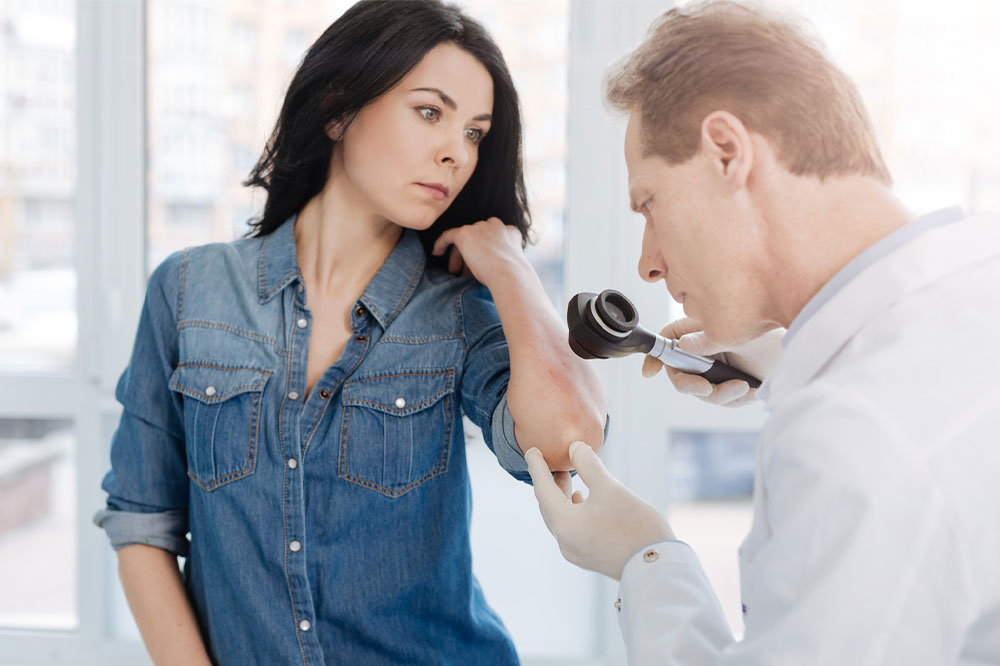6 Ways to Manage and Prevent Psoriasis

Psoriasis is a chronic, painful, and inflammatory disease that affects the skin and nails, leading to disfigurement and disability. It can happen to anyone, but people aged 50 and above are at higher risk than others. Genes and a weak immune system are considered to be the significant causes of psoriasis. Other triggers include sunburn, infections, trauma, underlying diseases, treatment side effects, and stress. This article will discuss ways to manage psoriasis effectively.
Psoriasis and its impact on the body
Psoriasis is caused by a dysfunction in the immune system resulting in inflammation. The inflammation causes lesions, bumps, raised plaques, and scales on the skin. When our immune system works well, our skin cells grow and shed once in fifteen days. When affected by psoriasis, the skin cells pile up instead of shedding, and the accumulated plaque build-up can burn, sting, or cause an itch.
Psoriasis may affect both the internal and external organs. Externally it usually affects the elbows, knees, and scalp. Internally it can affect any tissues and our organs. In some, it may affect the joints causing psoriatic arthritis. People with psoriasis are also at risk for cardiovascular diseases, hyperpigmentation, Chron’s disease, psychological disorders, and uveitis. Since there is no cure, treatment aims to control the symptoms and prevent remission.
Six ways to medically manage psoriasis
Physical examination
Once you consult a doctor, they will start with a thorough physical examination to understand the plaque’s appearance, location, and severity. They will also talk to you about recent infections, family history, and any other underlying health conditions that may be causing it. For example, if you are consulting your primary physician, they may refer you to a dermatologist at this stage.
Topical emollients and creams
Doctors may prescribe emollients and creams that can reduce inflammation, reduce the production of skin cells, and improve the symptoms of itch and pain.
Prescription treatments
Along with creams, doctors may also prescribe a combination of oral systemic treatments that target the molecules inside our immune cells and correct the overactive immune response. Doctors also prescribe Disease-Modifying Antirheumatic Drugs (DMARDS) for those with severe symptoms.
Injections
Doctors may prescribe creams and oral treatments if the symptoms are very severe or if other treatment methods are ineffective in controlling the symptoms.
Phototherapy
Phototherapy has been used for more than a century to treat psoriasis. Doctors expose the affected area to Ultraviolet rays to reduce inflammation and slow skin cell production. You may require multiple sessions of phototherapy to see visible changes.
Six steps to prevent psoriasis flare-ups
Having one or two parents with psoriasis and using tobacco are two major risk factors for psoriasis. Following a good skincare routine and regular screening can help you prevent frequent psoriasis flare-ups.
One can follow these six steps to prevent psoriasis flare-ups:
Stay hydrated
Psoriasis symptoms can become severe if you have dry skin. Drink about 6-8 glasses of water and fluids to prevent dehydration. Use thick creams that can keep the skin moisturized for some time.
Follow a healthy skincare routine
Good skincare is the foundation of preventing or arresting psoriasis flare-ups. Use organic and hypoallergenic skin care products. While a few minutes in the sun can benefit you, do not spend long hours outside. If you must be outdoors, ensure your arms and legs are covered. Always carry a hat, umbrella, scarf, and sunscreen in your purse.
Avoid the following in your meals
Food is one of the primary triggers for a psoriasis flare-up. Maintaining a food journal can help you identify what triggers it for you. Avoid the following:
- Dairy products
- Eggplant
- Gluten
- Highly processed food with chemical additives and flavor enhancers
- Pork
- Red meat
- Rich, sugary desserts
- Shellfish
- Snacks and bread made with refined flour
- Tomatoes
- White potatoes
Avoid exposure to psoriasis triggers
Besides food, many other natural, chemical, and environmental triggers can cause a flare-up. Following are some of the common psoriasis triggers:
- Bruises
- Specific prescription treatments used for treating hypertension, malaria, and hepatitis C
- Dry weather
- Humid weather
- Insect and bug bite
- Low estrogen
- Skin injury
- Stress
- Too much exposure to the sun
- Upper respiratory infections
Learn to manage stress
Stress is one of the significant triggers of psoriasis. A flare-up and the consequent rashes and itch can add to the stress. Light exercise, yoga, Tai Chi, and meditation can help you calm yourself. You can also spend time on your hobbies and with family and friends. You can also ask your doctor to refer a psychotherapist if you cannot manage stress yourself.
Avoid self-prescription
Certain oral prescription treatments have been proven as psoriasis triggers. Talk to a doctor before getting any treatment and talk to them about your symptoms so that they can avoid prescribing anything that could be a potential trigger. Do not take any oral treatment without a doctor’s advice.
Six home remedies for psoriasis
Since psoriasis is a chronic condition without a cure, you may have to take treatment for a long time. Self-care and home remedies can help the dependence on prescription treatments. (Do not discontinue any treatment without the doctor’s advice). Here are some of the home remedies for psoriasis that one can follow:
Cold compress
Apply a cold compress to the affected areas. It can help in reducing itches and prevent rashes from spreading.
Warm bath
Soak in a lukewarm bath for 15 minutes to loosen the scales. Add sea salt, oatmeal, and light coal tar bath gel to the warm water to help cool your skin and prevent the itch from spreading.
Essential oils
Essential oils have always been effective in treating skin conditions. Apply them directly or mix them with carrier oil as per instructions. Essential oils that are beneficial for psoriasis include:
- Castor oil
- Coconut oil
- Geranium oil
- Lavender oil
- Tea tree oil
Aloe vera
Aloe vera gel is a highly recommended herb for dry skin conditions. Buy organic and certified pure aloe vera gel and apply it twice a day.
Bitter melon
Bitter melon is a bitter and edible fruit, and its enzymes inhibit psoriasis flare-ups. Talk to a doctor or nutritionist about the proper dosage for you. You should avoid it if you have low blood sugar.
Use a humidifier
A humidifier keeps the air moist at night and can keep the skin moist while you sleep. A 24-hour moisturizing care can help prevent a flare-up.

